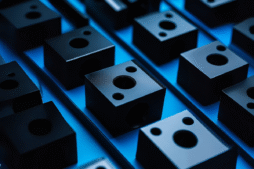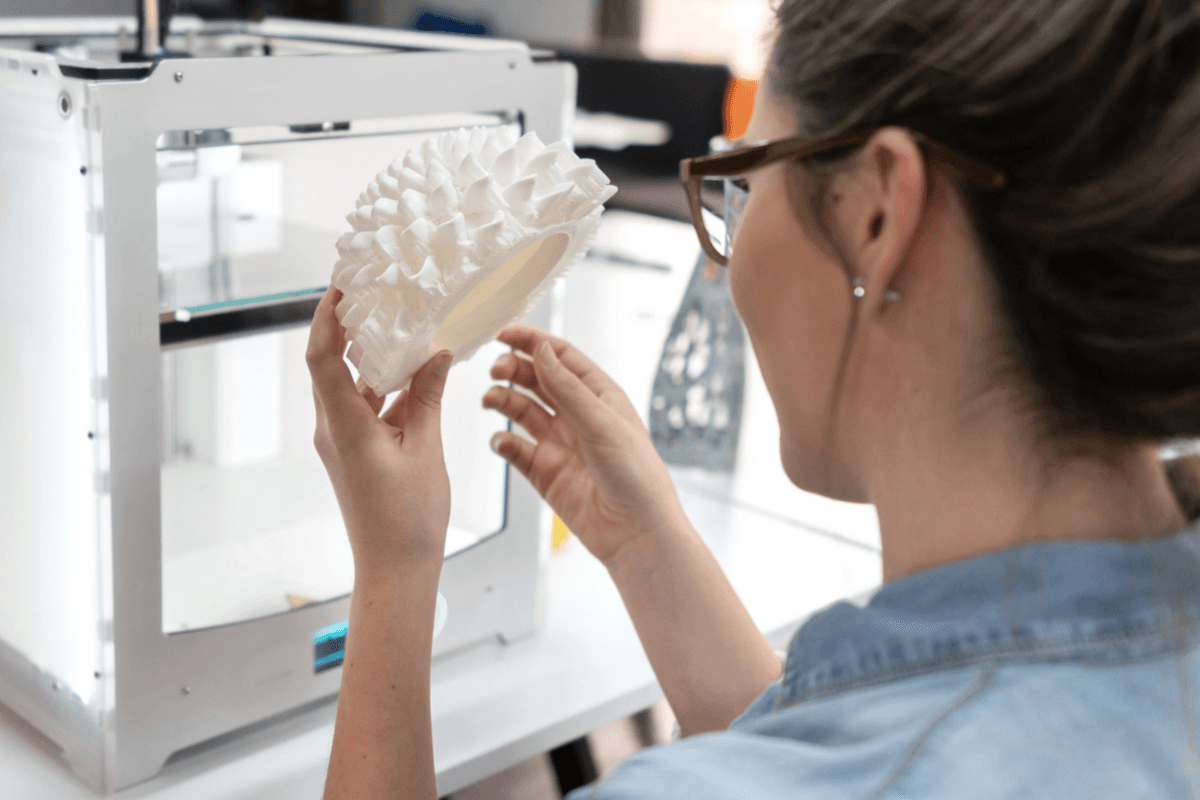
Dans le paysage concurrentiel de la fabrication de lentilles, même des limitations de conception mineures peuvent avoir un impact significatif sur la fonctionnalité du produit et la satisfaction de l'utilisateur. Nous avons récemment entrepris un projet pour relever les défis auxquels est confronté l'un de nos estimés clients.
Dans ce blog, nous vous emmenons dans les coulisses du processus de refonte, mettant en valeur notre engagement envers l'innovation, l'ingénierie de précision et la collaboration avec les clients.
Dans les coulisses
Défis rencontrés par le client
Notre client nous a contactés pour nous faire part de ses inquiétudes concernant la conception de son capuchon d'objectif, qui entravait l'accès au port de chargement USB, une caractéristique cruciale pour la fonctionnalité de son produit.
L’identification de ce défi a nécessité une compréhension globale des besoins du client et une analyse minutieuse des contraintes de conception existantes.
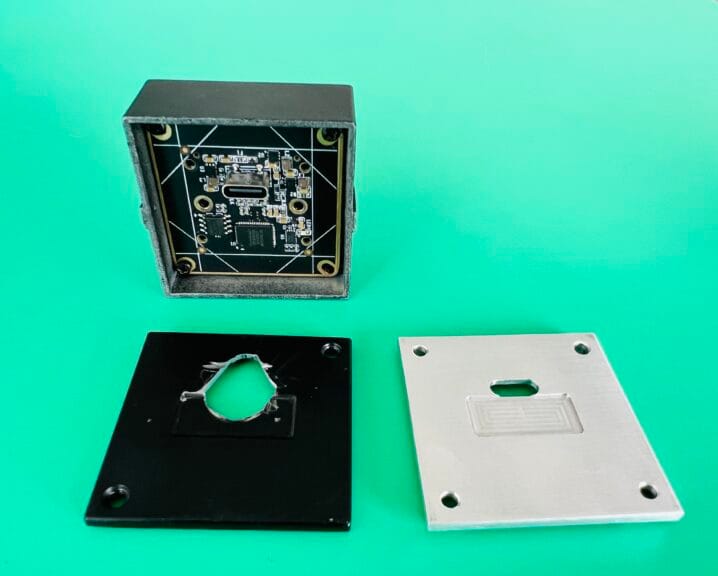
Brainstorming et efforts collaboratifs
Pour trouver une solution, notre équipe d'ingénieurs a mené des séances de brainstorming intensives, explorant divers concepts et approches de conception. Les idées ont été méticuleusement évaluées, en tenant compte de facteurs tels que la faisabilité, la fabricabilité et l'adéquation avec les objectifs du client.
Grâce à des efforts collaboratifs, nous avons trouvé une solution qui promettait de répondre efficacement aux préoccupations du client.
Panne technique
Utilisation de l'usinage CNC pour la précision
Au cœur de notre solution se trouvait l'utilisation de pièces CNC (commande numérique par ordinateur) personnalisées. Découvrez-en plus sur les avantages de Usinage CNC dans une fabrication de haute précision. L'usinage CNC nous a permis d'atteindre une précision et une cohérence inégalées dans la fabrication du capuchon d'objectif redessiné.
La polyvalence de cette technologie nous a permis de traduire des concepts de conception en composants tangibles avec une précision remarquable.
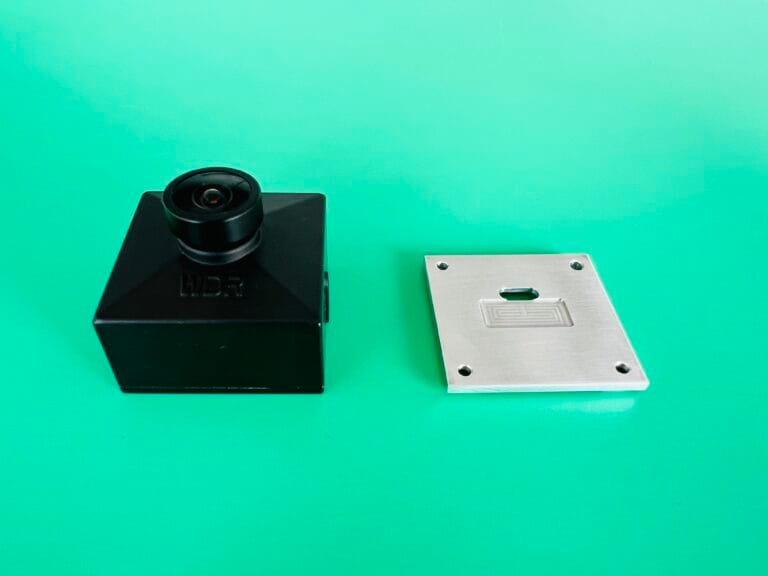
Collaboration avec les clients
Communication efficace et intégration des commentaires
Tout au long du projet, une communication et une collaboration efficaces avec le client ont été primordiales. Leurs commentaires ont éclairé chaque itération de conception, guidant notre processus de prise de décision et garantissant l'alignement avec leur vision.
Les défis rencontrés au cours de la collaboration ont été traités rapidement, favorisant un partenariat collaboratif fondé sur la confiance et la transparence.
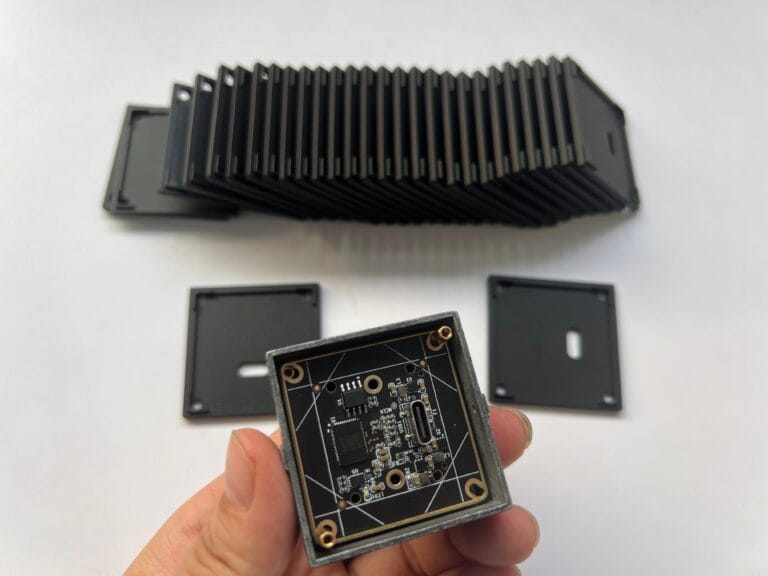
Assurance qualité
Tests et validation rigoureux
L'assurance qualité est restée la pierre angulaire de notre processus, avec des procédures de test rigoureuses mises en œuvre pour valider le prototype de capuchon d'objectif repensé. Découvrez les normes de l'industrie pour assurance qualité dans le secteur manufacturier.
Des tests fonctionnels aux évaluations de durabilité, chaque étape a été méticuleusement exécutée pour garantir la fiabilité et les performances du produit final.
Normes et certifications de l'industrie
Notre engagement envers la qualité et l’excellence a abouti à l’obtention de normes et de certifications industrielles.
Ces distinctions témoignent de notre engagement à fournir des produits du plus haut calibre, établissant ainsi une référence en matière de qualité au sein de l’industrie de fabrication de lentilles.
Impact et perspectives d'avenir
Stimuler la croissance grâce à l'innovation
L’innovation continue est au cœur de notre approche, stimulant la croissance et la compétitivité dans des secteurs tels que la fabrication de lentilles.
En restant à la pointe des avancées technologiques et en anticipant l’évolution des besoins des consommateurs, nous nous efforçons d’améliorer notre offre de produits et d’améliorer l’expérience client.
Avantages à long terme pour les clients et les utilisateurs finaux
Le capuchon d’objectif repensé répond non seulement aux préoccupations immédiates, mais offre également des avantages à long terme tant pour le client que pour les utilisateurs finaux.
De l’amélioration des performances du produit à l’amélioration de l’expérience utilisateur, le capuchon d’objectif repensé ouvre les portes à des opportunités de marché élargies et à une satisfaction client accrue.
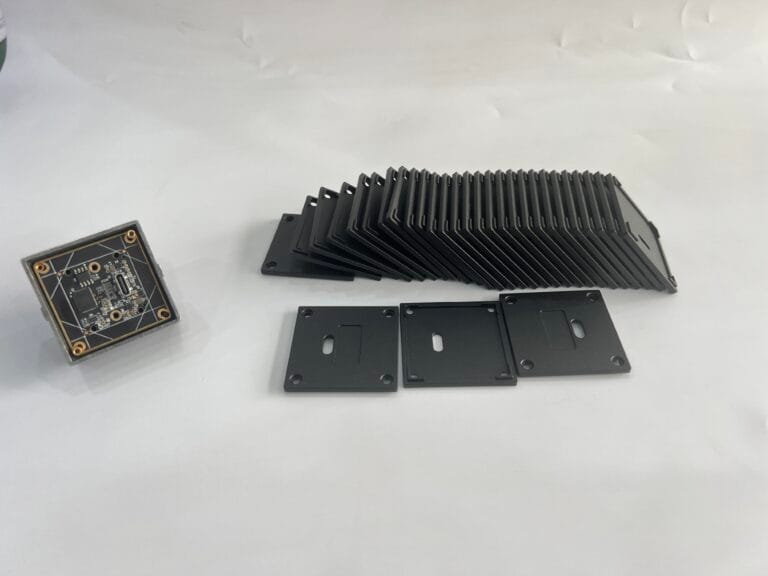
Fin
Chez Witcool, chaque défi est une opportunité d'innovation. Nous nous engageons à servir nos clients avec excellence et sommes impatients de vous aider dans vos projets d'objectifs. Contactez-nous pour une qualité et une innovation inégalées.
FAQ
Q : À quels défis spécifiques le client a-t-il été confronté avec la conception de son capuchon d'objectif ?
R : Le client a rencontré des difficultés avec la conception de son cache d'objectif qui gênait l'accès au port de chargement USB, une fonctionnalité essentielle de son produit. Cette limitation a nécessité une refonte pour améliorer l'accessibilité et la facilité d'utilisation.
Q : Comment votre équipe d’ingénieurs a-t-elle abordé le processus de résolution ?
R : Notre équipe d’ingénieurs a adopté une approche collaborative, en participant à des séances de brainstorming intensives pour explorer divers concepts et solutions de conception.
Nous avons priorisé une communication efficace et l’intégration des commentaires pour garantir l’alignement avec les objectifs et les exigences du client.
Q : Quel rôle l’usinage CNC a-t-il joué dans le processus de refonte ?
R : L'usinage CNC a joué un rôle essentiel dans la précision et la cohérence de la fabrication du nouveau capuchon d'objectif. En tirant parti de cette technologie de fabrication avancée, nous avons pu traduire les concepts de conception en composants tangibles avec une précision et une qualité inégalées.
Q : Comment la collaboration avec le client a-t-elle influencé le résultat final de la conception ?
R : Une communication et une collaboration efficaces avec le client ont été déterminantes pour façonner le résultat final de la conception. En intégrant les commentaires du client tout au long du projet, nous avons pu itérer et affiner la conception pour répondre à ses besoins et préférences spécifiques.
Q : Quelles mesures d’assurance qualité ont été mises en œuvre pour garantir la fiabilité du bouchon d’objectif repensé ?
R : Des procédures rigoureuses de test et de validation ont été mises en œuvre pour garantir la durabilité, la fonctionnalité et la fiabilité du prototype de capuchon d’objectif repensé.
Des tests fonctionnels aux évaluations de durabilité, chaque étape a été méticuleusement exécutée pour respecter notre engagement envers la qualité et l’excellence.


